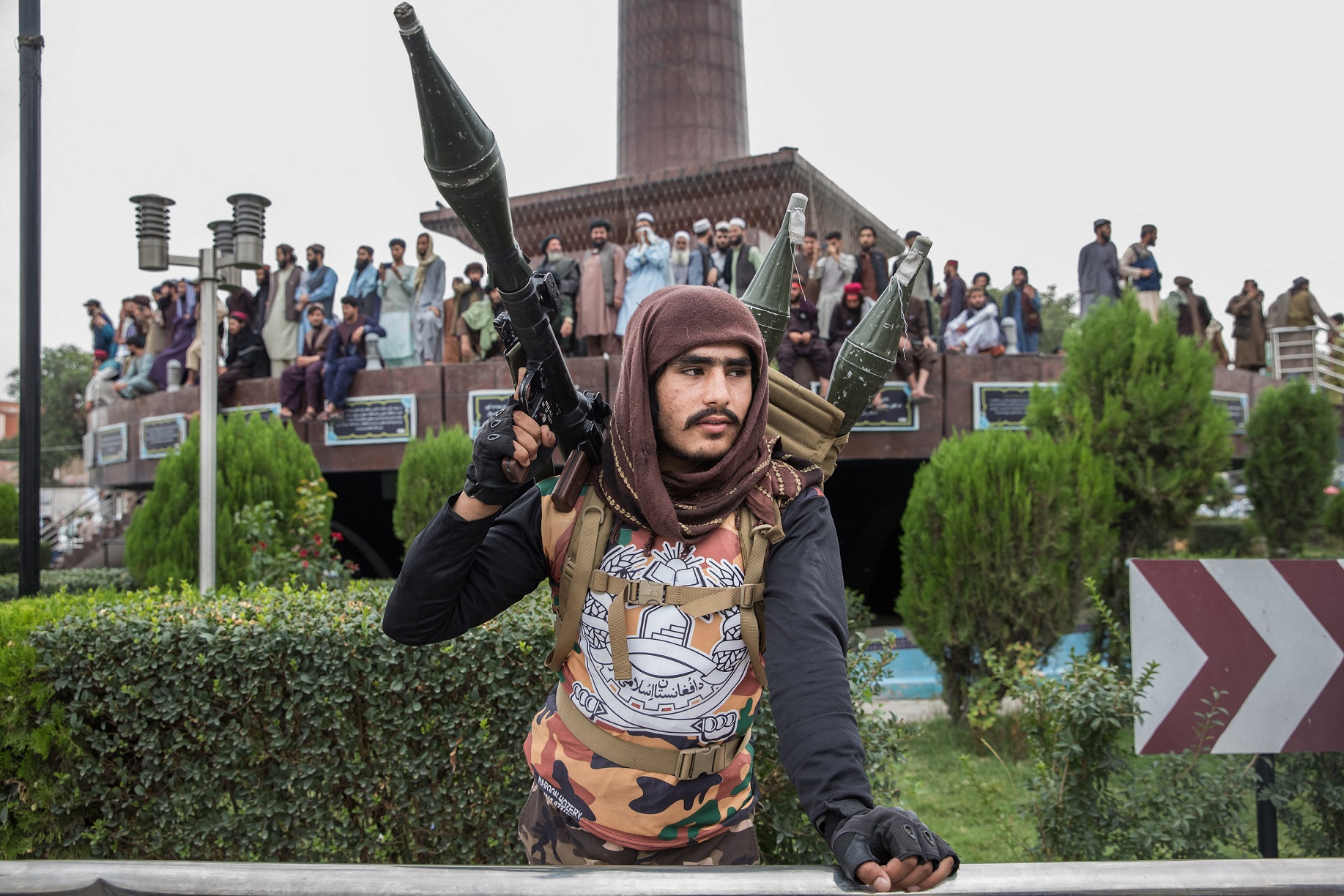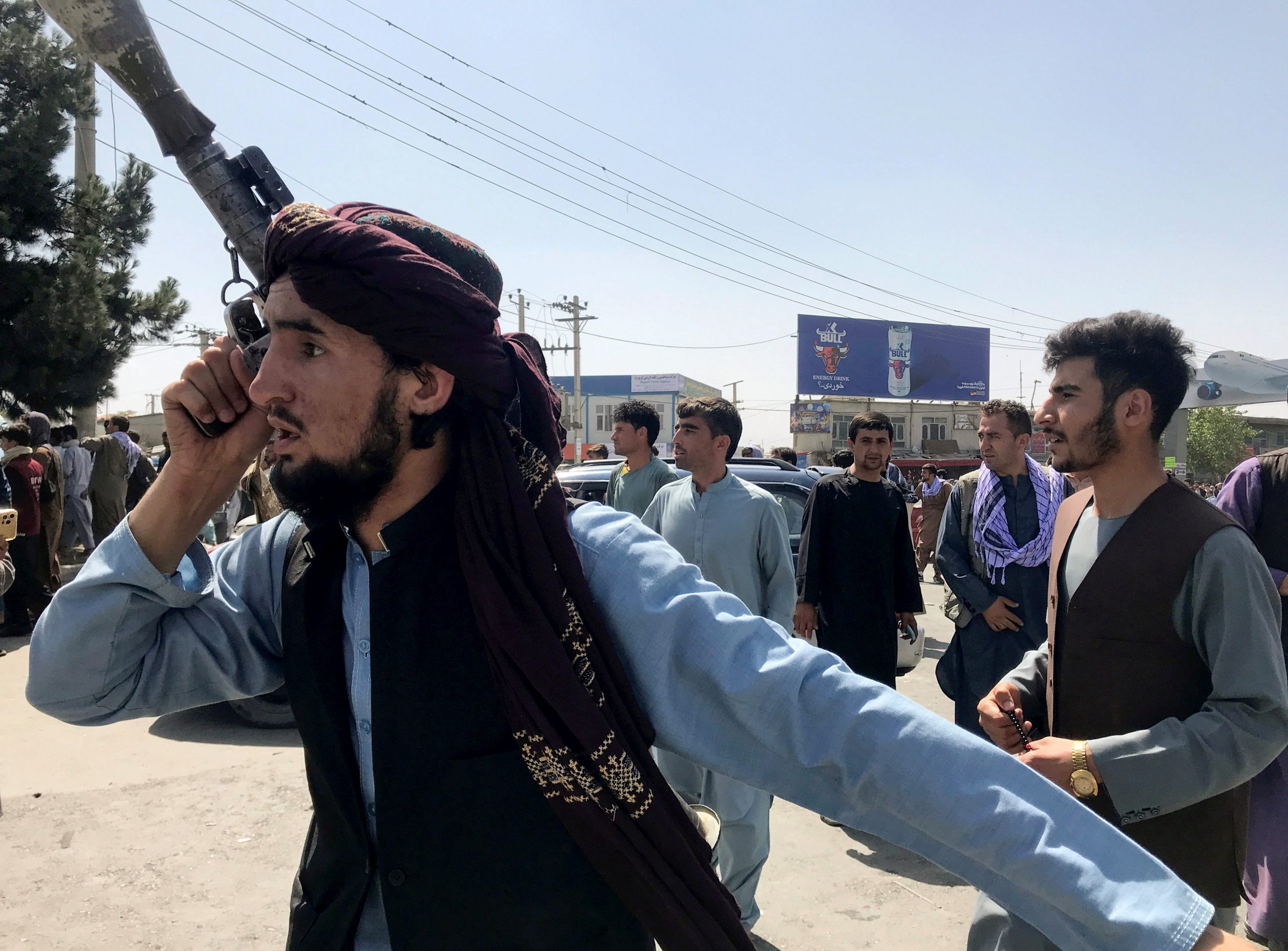Yoram Schweitzer, Eldad Shavit

The end of August 2022 will mark one year since the United States withdrawal from Afghanistan. The Taliban's quick takeover of the capital city of Kabul and the fact that Afghan President Ghani fled the country created a situation where the departure of the forces took place against the backdrop of a violent deterioration on the ground. The presence of the Taliban, despite understandings between the US administration and the Taliban that it would refrain from any harm to Americans and NATO forces, evoked fear and chaos. Thousands of Afghans congregated at the airport seeking to escape from the terror of the new regime. The difficult images received much coverage worldwide and created the impression that the United States was running away from Afghanistan. Beyond the failure of American intelligence in assessing the survivability of the Afghan government, it seemed that the events harmed the image of US strength in general and the image of President Biden in particular.
One year later, it is worth examining the implications of the withdrawal from two perspectives: the fight against global terrorism, and the global interests of the United States as a superpower.
The Fight against Terrorism
Despite its prolonged presence in Afghanistan, costly in blood and treasure, the United States resolved to continue fighting against terrorism everywhere, including in Afghanistan itself. Nevertheless, the struggle figures relatively low on the list of priorities compared to the importance that was attributed to it following the September 11, 2001 terrorist attack, and a decision was made to adopt different policies than those pursued over the course of two decades.

Regarding Afghanistan specifically, the decision to withdraw the United States military presence was shared by the last three administrations. Ultimately it was the Trump administration that signed the withdrawal agreement with the Taliban in February 2020 and the Biden administration that implemented it. Both Presidents, notwithstanding the significant differences between them, shared a worldview whereby in the final analysis, despite the potential military, political, and image-related risks inherent in a withdrawal, the advantages outweigh the disadvantages. In practice, the fight against terrorism, which was a cornerstone of US policy, was relegated to a less prominent place on the agenda following a decline in the scope of international terrorism and the need to address global challenges that the administration sees as more urgent vis-à-vis United States security.
Thus, the United States decided to reduce significantly its extensive military presence around the globe and instead in most places leave a limited military-security delegation whose role is to help local forces fight against terrorism through intelligence cooperation, training, and logistical and economic assistance. President Biden, like his predecessors in the White House, has clarified repeatedly that the United States has no interest in being involved in "forever wars" and that it has at its disposal the relevant tools to cope with challenges without "boots on the ground."
From the perspective of the struggle against international terrorism, there do not appear to be signs that al-Qaeda intends to restore Afghanistan as a global training base for terrorists from multiple nations, in order to train them to carry out acts of terrorism in the West. Despite the July 2022 targeted killing by the United States of Dr. Ayman al-Zawahiri, the leader of al-Qaeda, in his hideout in Kabul, it is still unclear whether the rest of the organization's veteran and prominent leaders, who are dispersed in many locations, have convened or intend to convene again in Afghanistan. Furthermore, at this stage, it does not seem that the Taliban itself is enabling al-Qaeda to reestablish itself within Afghan territory. Among the Taliban, which is not of uniform opinion, there are those who oppose this. Many of the organization's current commanders remember the heavy toll exacted of its former regime by the United States when it let al-Qaeda operate under its aegis and use the country's territory not only as a training base for terrorism, but also as a launch pad for murderous terrorism against the United States and its allies.

With the requisite caution, we can posit that al-Qaeda, given its current operational capabilities and infrastructure abroad, cannot now return to large-scale terrorist campaigns as in the past. However, despite the difficulties, the organization has not disappeared from the world and continues to function, and therefore close intelligence surveillance is required in order to minimize the risk of surprise. The possibility exists that in the coming years al-Qaeda and the other terrorist organizations in Afghanistan that are identified with it will, despite the killing of al-Zawahiri, exploit the safe haven there in order to regroup, recruit new forces, and prepare new trained and skilled manpower for future acts of terrorism in the West. (Al-Qaeda's counterpart and rival, the Islamic State–Khorasan Province, which is active in Afghanistan, focused its terrorist attacks in the past year mainly against the Taliban regime and against minorities within the country, as well as sporadic activity against Afghanistan's neighbors, and at this stage is not able to invest in exporting terrorism from Afghanistan to Western countries).
Regarding the threatening possibility of renewed terrorism in the international arena, President Biden has promised that the United States will retain capabilities ("over the horizon") that will enable it to thwart such plans while they are still in their early stages. In this context, the United States is expected to rely on remote intelligence gathering using advanced technology, and especially to strengthen collaboration with regional allies. This is despite the fact that without a physical presence in Afghanistan and without a diplomatic mission, it will be more difficult for US administrations to fulfill these commitments.
The United States Standing
The harsh images of the withdrawal have accompanied the Biden administration to this day, and it seems that even if their weight in the assessment of the President’s performance has decreased, it is possible they are part of the other elements in the President's declining popularity. It is also likely that the Republican Party will try to use them in the midterm elections (November 2022). Nevertheless, over the long term, it seems that Biden's decision to withdraw in practice was correct in terms of the allocation of US resources, and did not harm the United States' superpower standing. The withdrawal has enabled the administration not only to focus attention and resources on coping with what it sees as the main threats today – the competition with China and the rivalry with Russia, especially against the backdrop of the war in Ukraine – but also to demonstrate great determination toward Russia, and to a certain extent this compensates for the difficult impressions of the withdrawal. Furthermore, the US administration's assistance to Ukraine, while not including military forces, is proof from the administration's perspective that even after leaving Afghanistan, it comes to aid allies in need.

The American departure led to the Taliban's renewed takeover of Afghanistan, which, inter alia, means the imposition of extreme Islamic laws and a significant deterioration in the rights of women in particular and of Afghanistan's citizens in general. The country is also experiencing an economic and humanitarian crisis. This is a problematic development, but in the view of the American administration, it is not to blame, but rather the Taliban, which could have received international aid had it acted differently.
From Israel's perspective, the US withdrawal from Afghanistan was not a significant turning point, because in practice the Sunni Salafi-jihadi organizations do not focus their struggle on Israel. It mainly has significance for their morale and that of organizations that are part of the Shiite axis. In their view, the withdrawal illustrated that the United States is a unreliable source of support for its allies. However, Iran, Israel's main adversary, now needs to give increased attention to events on its border with Afghanistan – although this will not undermine its activity throughout the Middle East. What was interpreted at the time of the withdrawal and afterwards as a blow to the American image of strength and commitment did not in fact change the attitude of actors in the region towards the United States, as was reflected during President Biden's visit to the region in July this year: on the one hand these actors are interested in close relations with the United States and in need of it, and at the same time they understand that its policy toward the region is more cautious than in the past, certainly when it comes to utilizing military resources.
No comments:
Post a Comment